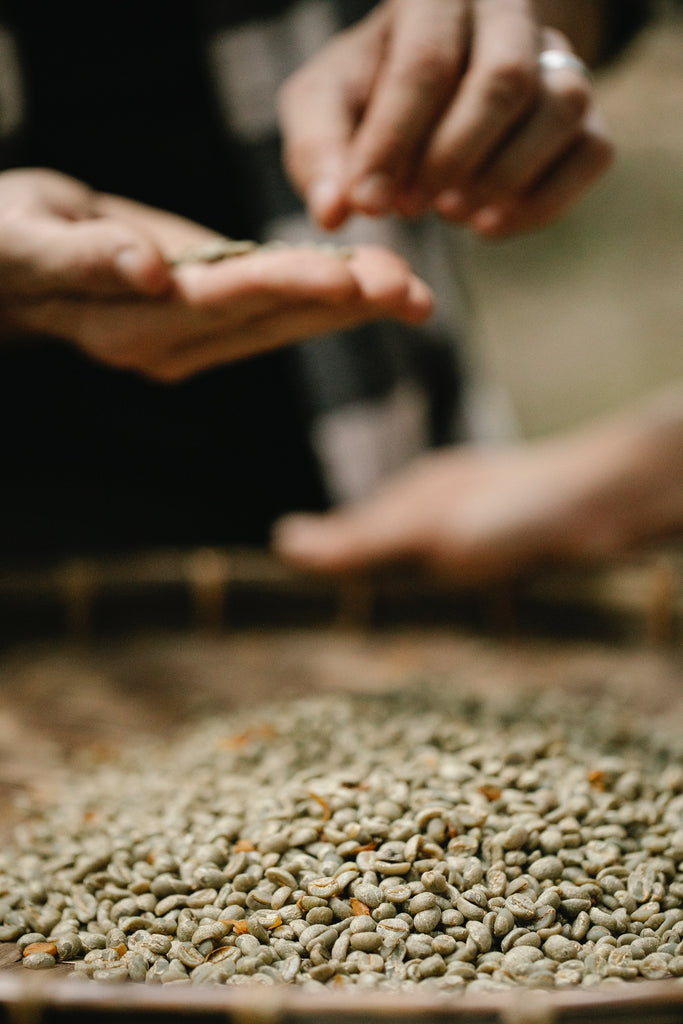The grading of Coffee explained

How do you like your coffee? I like mine black, with no sugar or cream. But there are many different ways to enjoy this popular drink, from adding flavors and spices to using different types of coffee beans. In this blog post, we'll explore the different types of coffee beans and how they're classified.
It's no secret that coffee is a big deal. It's the most popular drink in the world, and there are entire cultures built around it. But what many people don't know is how coffee is classified. Brewing the perfect cup of coffee starts with choosing the right beans .But do you know how to classify different types of coffee beans?
Coffee is a brewed drink prepared from roasted coffee beans, the seeds of berries from certain Coffea species. The genus Coffea is native to tropical Africa and Madagascar, the Comoros, and Mauritius. Coffee plants are fruit trees that can grow up to about 15 m (49 ft) tall, but Coffee arabica will typically grow to about 9 m (30 ft). Robusta coffee plants can grow up to 12 m (39 ft), but are more commonly found at 6–8 m (20–26 ft). One source says that "coffee is the second most valuable commodity exported by developing countries." However, there have been doubts raised over this figure.
Arabica is considered the higher quality bean, while Robusta is known for being more bitter and has a stronger flavor. There are benefits to both types of beans, so it ultimately comes down to your personal preference. Whether you like a milder cup or something with more of a kick, there's a type of coffee bean out there for you. We use only 100 % arabica coffee beans in our 1936 coffee.
Do you know how your coffee is graded? Probably not, since it's a pretty boring topic. But, if you're at all curious, read on. Coffee grading is actually based on the size and density of the bean. The smaller and denser the bean, the higher the grade. Makes sense, right? Let's take a closer look at each grade to see what sets it apart.
We all know there are different levels of coffee, but did you know that there are five grades? Grade 1: Specialty Grade Coffee Beans. Grade 2 : Premium Grade Coffee Beans, Grade 3 :Exchange Grade Coffee Beans, Grade 4 Standard Grade Coffee Beans ,and Grade 5 : Off Grade Coffee Beans.The higher the quality, the more expensive it is. But what makes each grade different? And which one should you be buying? Let's find out!
Coffee beans are not all created equal. In fact, the taste and quality of coffee beans can vary significantly depending on the region where they're grown and the method used to process them. Specialty grade coffee beans, for example, are considered to be some of the highest quality beans in the world. the beans need to have no primary defects and 0-3 full defects, with a maximum of 5% above and below the specified screen size. For coffee to be considered a specialty grade, the Speciality Coffee Association has required that it be free of quakers.
Quakers are coffee beans that don't turn dark brown when roasted. When cupping, these beans need to have a distinct attribute in one of the ares of taste, acidity, body or aroma, and be free of cup faults and taints.
Premium grade coffee beans are lightly below the best .By definition, premium coffee beans are those which receive a Grade Two in green grading. They have the same standards as specialty coffee beans except have a maximum of 3 quakers and 0-8 full defects.
Exchange Grade Coffee, classified as Grade 3, has at least 50% of beans above screen size 15 and a maximum of 5% below screen size 15. The beans must be free from faults, may exhibit 9-23 secondary defects, and 5 quakers. Grade 3 beans are most commonly used for supermarket brands and by non-specialty coffee producers.
Grade 4 is referred to as Standard Grade Coffee (24-86 secondary defects allowed) and Grade 5 is referred to as Off Grade Coffee (86+ secondary defects allowed). In our experience, Grade 4 and 5 beans are extremely sour and unpleasant to drink.
We hope this article has helped you to understand the different grades of coffee beans and their characteristics. If you are looking for a specific flavor profile, it is important to select the right bean grade. Keep in mind that the taste of coffee can also vary depending on the brewing method and water quality. What's your favorite type of coffee? Let us know in the comments!

Leave a comment